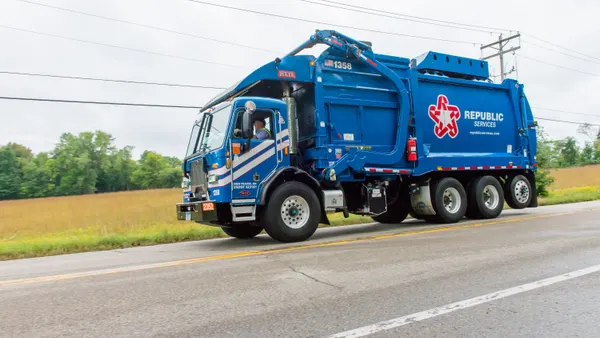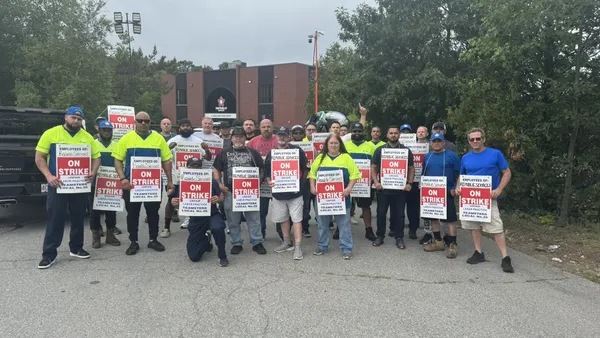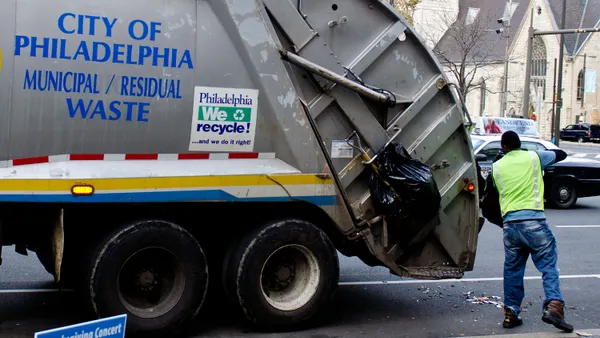UPDATE: The Springfield-Greene County Environmental Advisory Board recommended that Springfield, MO move to a franchise system, according to the Springfield News-Leader.
The board, which is appointed by the Springfield City Council, said dividing the city into quadrants would be the most environmentally friendly, but could damage small haulers. The board’s official recommendation is dividing the city into 12 districts, each sized so that every hauler retains their current number of customers.
The haulers would also contract with the city to make sure that prices and services are relatively similar across the city.
Dive Brief:
- Haulers in Springfield, MO met with city council members last week to advocate for the city maintaining its open-market collection system, as reported by the Springfield News-Leader.
- City leaders have proposed dividing the city into 12 districts, one for each hauling company, or dividing the city into quadrants and opening them up for competitive bidding. Consulting firm Burns & McDonnell has been hired to assist the city with analysis and recommendations.
- Springfield currently has contracts with WCA Waste Corporation and Republic Services, which expire in spring 2019. The contracts require them to transport a certain amount of waste to a city-owned landfill, bringing in revenue through tipping fees. Tipping fees make up the majority of funding for Springfield's collection centers.
Dive Insight:
This meeting comes months after Springfield released a study in April that said residents could save money under an "optimized" collection system. Haulers expressed their unease with the proposal of a franchising system then and reiterated those feelings again this month. Common concerns include losing the ability to expand their businesses or losing relationships with long-time customers.
Despite those concerns, officials in Springfield appear to be moving forward with the proposal. Erick Roberts, superintendent of environmental services in Springfield said in September that the city had given haulers a state-mandated two-year notice on its intent to move to a franchise system.
The debate over franchising collections versus an open-market system is likely to continue for the foreseeable future. Comparisons to large cities that are considering or have implemented this system, such as New York or Los Angeles, can be difficult. Though Springfield is similar in its number of haulers to St. Paul, MN, where city officials recently voted to move to an organized collection system as soon as next fall.
Many of the industry's largest companies have come out in support of this structure and franchise fees can be an effective way for local governments to generate revenue. However, consumers aren't always happy about being forced to change haulers. For decades, customers in St. Paul made their own choices. Now the city is changing to an organized system where all 15 haulers will have a share of the business and determine the collection routes. How consumers in St. Paul react could provide useful context for smaller municipalities such as Springfield about how to communicate these big changes and achieve an efficient transition.









